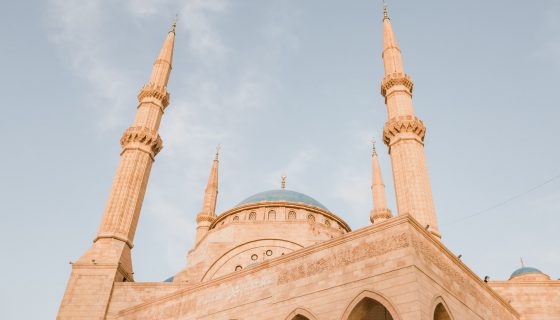- Mediterranean Hope - Federazione delle chiese evangeliche in Italia
- mh@fcei.it
Stories from Beirut: The First Humanitarian Corridor Was Not a Foregone Conclusion
Francesco Piobbichi e Simone Scotta – NEV
Beirut, Lebanon (NEV), February 10th 2016 – There are days that quietly pass away, others, instead, seem never end. February 3rd was one of those never-ending days. It began well, we were in the centre of Beirut among car horns and smog. We were in a cafeteria waiting for the “OK” written in a WhatsApp message from Maria Quinto who had meeting with the Lebanese authorities They had all: visas for humanitarian reasons issued by the Italian authorities, airline tickets, our friend Bayan ready to for the pick up of that family fled from Homs three years before and waiting anxiously for the green light to pack up and reach Italy. They only missed that OK, the green light of the Lebanese authorities. The night before we left thinking that everything was ready and the biggest part had been worked out.
But the story had not begun that day of February. The story begun before, when we got an email telling us the story of a Syrian girl, suffering from retinoblastoma. Her name was Falak, she had fled from the war and at that time was living in a garage in Tripoli, northern Lebanon, near the Syrian border. We got that story from the island of Lesbos thanks to the word of mouth of the volunteers working on the frontier. Falak’s uncle who had reached Lesbos on a boat told them about his relatives. Thus, at the beginning of January we had decided to leave and reach that family living in Tripoli and did everything we could to bring Falak, and her family in Italy.
Meanwhile, time had passed, and Falak, after surgery to remove her left eye, was in need of medical care to start chemotherapy. But in Lebanon her family should have to pay and d they could not afford it. Only through the humanitarian corridors it was possible to open a gate and save her. On February 3rd, everything seemed resolved and the anxiety accumulated for more than a month seemed gone.
They only missed that authorisation.
But we turn seriously concerned when we read that the father was not allowed to leave for a problem with his visa. They should be separated. Falak and her mother would leave and then the rest of the family would follow. It is no joke to jump into the future for a Syrian family, even due to a war that has destroyed your home and obliged you to live in a shanty garage, even for treating Falak. It is not easy because immigrating means leaving everything behind and start a new life, being separated at the frontier is critical.
We saw them crying saying goodbye, we shared their concerns, Bayan was much more than a taxi driver, was a piece of humanity met on the street who knew how to help us. “It would take a little” we thought. “We tried to keep calm as the project of humanitarian corridors meant a breach in the European border, and is a project that could open a huge political debate. Yet, but facing such stories made us disappointed. The hours pass and the day seemed to end like a last minute draw in soccer match. Then, while we were drinking our Turkish coffee we received the unexpected news: green light also for Falak’s father! He got the visa too! But it was late then. Travel agencies were closed, and Tripoli is far from Beirut. We decided to try it anyway, we booked the flight ticket with the iPhone using the wi-fi connection of the cafeteria. We rushed to get the visa and called Suleiman and told him to get ready, take a taxi and reach Beirut. Not having his visa, he might be stopped along the way, and could be brought to the police station for investigation. Thus, every twenty minutes we phoned him; that journey seemed endless, but in the end, in the middle of the night he arrived in Beirut together with Hussein, the brother of Falak.
We jumped into his taxicab with a taxi driver from Tripoli that did not know the streets of Beirut and it took two hours to find the hotel of Falak and her mother. Just taking a shower then we headed to the airport, ready to go. “What a day!” We thought looking at the light of Beirut … Passing this frontier seems to be a ritual, with thousands of tests, obstacles, emotions, and every time we passed a check point inside the airport this family lose something and gained something else.
When the plane took off, Falak and her brother laughed, we drew them flying over a feather passing the border, Falak started painting, while her mother wrote the asylum request to submit to the Italian authorities.
At Fiumicino they passed the final check point, the last fears fall behind him, a new life has begun. The uncle of Falak travelled from Germany and it was a great surprise that made everyone happy. They made it, we said with puffy eyes, but what a day …





